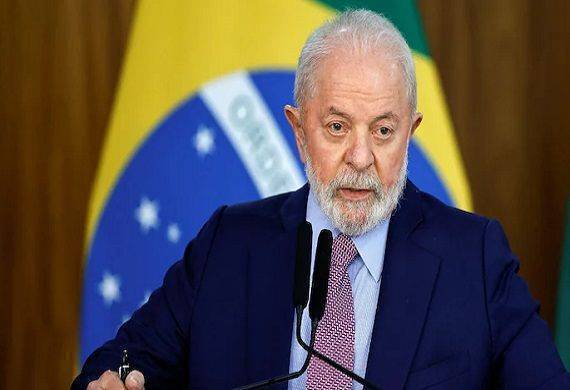Brazil's Lula Rejects 'Emperor' in Defiant Stand Against Trump Tariffs
By Global Leaders Insights Team | Jul 08, 2025

At the BRICS Summit in Rio this week, Brazilian President Luiz Inacio Lula da Silva took a firm stand against U.S. President Donald Trump’s tariff threats, saying, “The world has moved on. We don’t need an emperor.” The two-day meeting, wrapping up on July 7, brought together leaders from Brazil, Russia, India, China, South Africa, and newer members like Egypt and the UAE to discuss trade, global influence, and challenges to U.S. dominance.
Trump sparked tensions with a Truth Social post, threatening a 10% tariff on BRICS countries if they adopt “anti-American” policies. This followed the group’s statement criticizing one-sided tariffs as unfair under World Trade Organization rules, a clear jab at U.S. actions. Lula stressed that BRICS wants a fairer global economy, including ways to trade without relying on the U.S. dollar. “We need trade that doesn’t always go through the dollar,” he said, though he added that any shift would be slow and involve central banks. Trump had earlier warned of 100% tariffs if BRICS threatened the dollar, which dampened talks of a shared currency.
- Lula Rejects Trump’s Tariff Threats at BRICS: “We Don’t Need an Emperor”
- BRICS Summit: Brazil’s Lula Calls for Dollar Alternatives, Slams U.S. Trade Bullying
- Trump Warns BRICS, Lula Fires Back as Global Trade Tensions Escalate
Other leaders backed Lula’s stance. China’s Mao Ning called tariffs “bullying,” while Russia’s Kremlin said BRICS isn’t out to challenge anyone. India’s Prime Minister Narendra Modi focused on issues like terrorism and pushed for UN reforms, winning support for India’s 2028 climate conference. The group also spoke out against attacks on Iran and Israel’s actions in Gaza, showing their focus on global fairness.
Also Read: Trump's National Guard Use in California Faces Legal Test
A source suggested the U.S. might hold off on the 10% tariff unless BRICS takes clear “anti-American” steps. Representing over half the world’s population, BRICS positioned itself as a voice for a more balanced world, reminiscent of the Cold War’s Non-Aligned Movement. As trade disputes linger, the summit showed BRICS’ determination to reshape global economics through cooperation.
.jpg)



